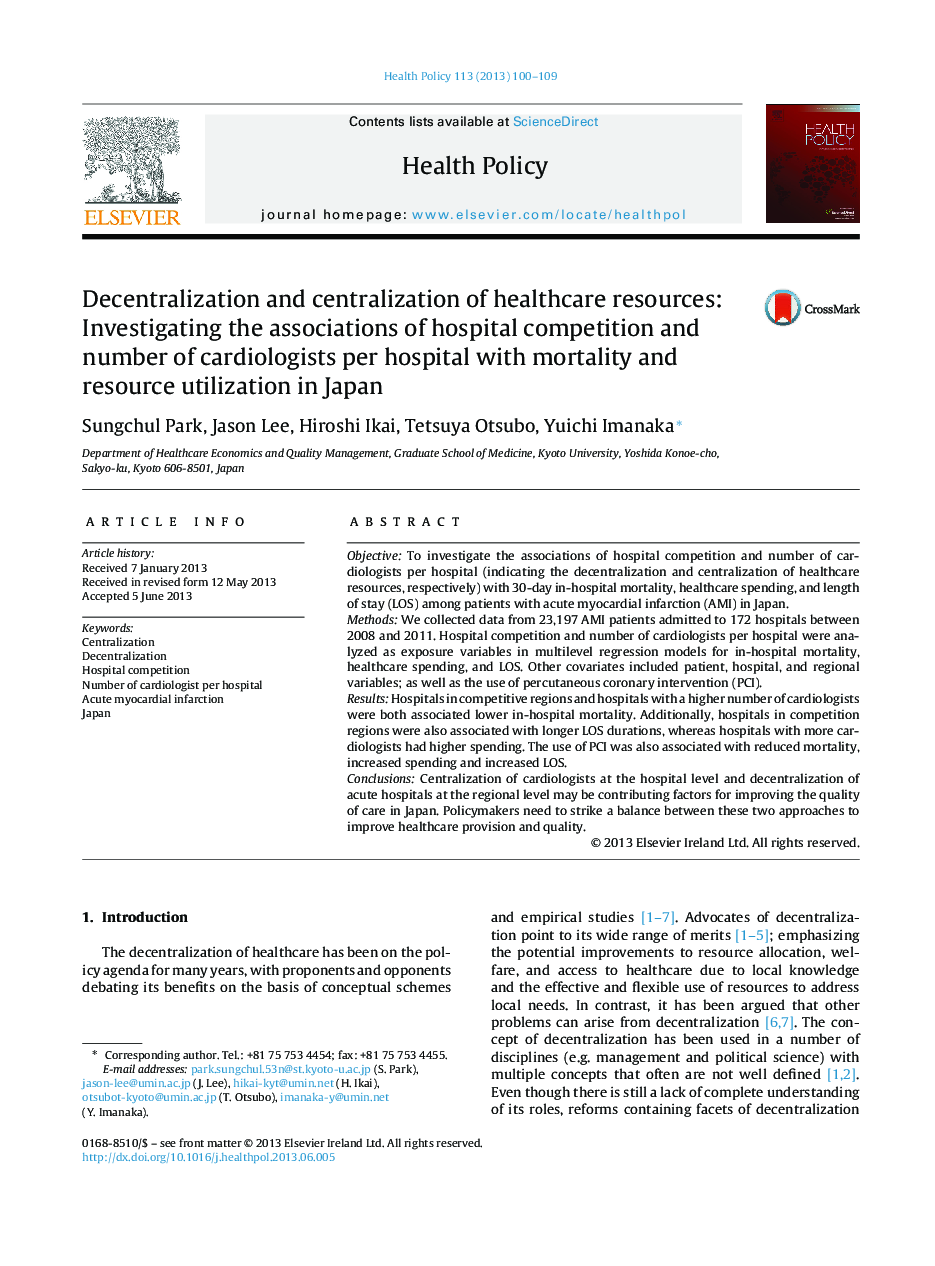| Article ID | Journal | Published Year | Pages | File Type |
|---|---|---|---|---|
| 6239878 | Health Policy | 2013 | 10 Pages |
ObjectiveTo investigate the associations of hospital competition and number of cardiologists per hospital (indicating the decentralization and centralization of healthcare resources, respectively) with 30-day in-hospital mortality, healthcare spending, and length of stay (LOS) among patients with acute myocardial infarction (AMI) in Japan.MethodsWe collected data from 23,197 AMI patients admitted to 172 hospitals between 2008 and 2011. Hospital competition and number of cardiologists per hospital were analyzed as exposure variables in multilevel regression models for in-hospital mortality, healthcare spending, and LOS. Other covariates included patient, hospital, and regional variables; as well as the use of percutaneous coronary intervention (PCI).ResultsHospitals in competitive regions and hospitals with a higher number of cardiologists were both associated lower in-hospital mortality. Additionally, hospitals in competition regions were also associated with longer LOS durations, whereas hospitals with more cardiologists had higher spending. The use of PCI was also associated with reduced mortality, increased spending and increased LOS.ConclusionsCentralization of cardiologists at the hospital level and decentralization of acute hospitals at the regional level may be contributing factors for improving the quality of care in Japan. Policymakers need to strike a balance between these two approaches to improve healthcare provision and quality.
